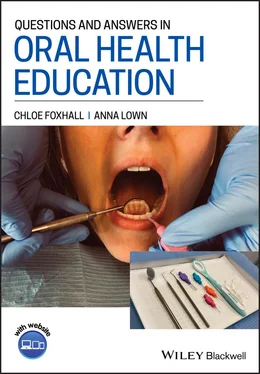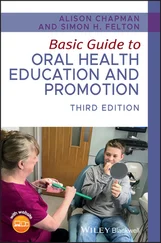the disposal of clinical and other hazardous waste
radiography
health and safety
decontamination
medical devices.
1.5.2 You must make sure that you have all necessary vaccinations and follow guidance relating to blood‐borne viruses.
1.5.3 You must follow the guidance on medical emergencies and training updates issued by the Resuscitation Council (UK).
1.5.4 You must record all patient safety incidents and report them promptly to the appropriate national body.
Standard 1.6 Treat patients fairly, as individuals, and without discrimination
1.6.1 You must not discriminate against patients on the grounds of:
age
disability
gender reassignment
marriage and civil partnership
pregnancy and maternity
race
religion or belief
sex
sexual orientation.
You must also ensure that you do not discriminate against patients or groups of patients for any other reasons such as nationality, special needs, health, lifestyle, or any other consideration.
1.6.2 You must be aware of and adhere to all your responsibilities as set out in relevant equalities legislation.
1.6.3 You must consider patients' disabilities and make reasonable adjustments to allow them to receive care which meets their needs. If you cannot make reasonable adjustments to treat a patient safely, you should consider referring them to a colleague.
1.6.4 You must not express your personal beliefs (including political, religious, or moral beliefs) to patients in any way that exploits their vulnerability or could cause them distress.
Standard 1.7 Put patients’ interest before your own boss or those of any colleague, business, or organisation.
1.7.1 You must always put your patients' interests before any financial, personal, or other gain.
1.7.2 If you work in a practice that provides both NHS (or equivalent health service) and private treatment (a mixed practice), you must make clear to your patients which treatments can be provided under the NHS (or equivalent health service) and which can only be provided on a private basis.
1.7.3 You must not mislead patients into believing that treatments which are available on the NHS (or equivalent health service) can only be provided privately. If you work in a purely private practice, you should make sure that patients know this before they attend for treatment.
1.7.4 If you work in a mixed practice, you must not pressurise patients into having private treatment if it is available to them under the NHS (or equivalent health service) and they would prefer to have it under the NHS (or equivalent health service).
1.7.5 You must refuse any gifts, payment, or hospitality if accepting them could affect, or could appear to affect, your professional judgement.
1.7.6 When you are referring patients to another member of the dental team, you must make sure that the referral is made in the patients' best interests rather than for your own, or another team member's, financial gain or benefit.
1.7.7 If you believe that patients might be at risk because of your health, behaviour, or professional performance or that of a colleague, or because of any aspect of the clinical environment, you must take prompt and appropriate action.
1.7.8 In rare circumstances, the trust between you and a patient may break down, and you may find it necessary to end the professional relationship. You should not stop providing a service to a patient solely because of a complaint the patient has made about you or your team. Before you end a professional relationship with a patient, you must be satisfied that your decision is fair and you must be able to justify your decision. You should write to the patient to tell them your decision and your reasons for it. You should take steps to ensure that arrangements are made promptly for the continuing care of the patient.
Standard 1.8 Have appropriate arrangement in place for patients to seek compensation if they suffer harm
1.8.1 You must have appropriate insurance or indemnity in place to make sure your patients can claim any compensation to which they may be entitled.
1.8.2 You should ensure that you keep to the terms and conditions of your insurance or indemnity and contact the provider as soon as possible when a claim is made. A delay in contacting the provider could disadvantage patients and may affect the level of help you receive from the provider.
Standard 1.9 Find out about laws and regulations that affect your work and follow them.
1.9.1 You must find out about, and follow, laws and regulations affecting your work. This includes, but is not limited to, those relating to:
data protection
employment
human rights and equality
registration with other regulatory bodies.
Principle 2 – Communicate Effectively with Patients
Patient expectation:
To receive full, clear, and accurate information that they can understand, before, during, and after treatment, so that they can make informed decisions in partnership with the people providing their care.
A clear explanation of the treatment, possible outcomes and what they can expect.
To know how much their treatment will cost before it starts, and to be told about any changes.
Communication that they can understand.
To know the names of those providing their care.
Standard 2.1 Communicate effectively with patients – listen to them, give them time to consider information, and take their individual views and communication needs into account.
2.1.1 You must treat patients as individuals. You should take their specific communication needs and preferences into account where possible and respect any cultural values and differences.
2.1.2 You must be sufficiently fluent in written and spoken English to communicate effectively with patients, their relatives, the dental team, and other healthcare professionals in the United Kingdom.
Standard 2.2 Recognise and promote patients’ rights to and responsibilities for making decisions about their health priorities and care.
2.2.1 You must listen to patients and communicate effectively with them at a level they can understand. Before treatment starts you must:
explain the options (including those of delaying treatment or doing nothing) with the risks and benefits of each; and
give full information on the treatment you propose and the possible costs.
2.2.2 You should encourage patients to ask questions about their options or any aspect of their treatment.
2.2.3 You must give full and honest answers to any questions patients have about their options or treatment.
Standard 2.3 Give patients the information they need, in a way they can understand, so that they can make informed decisions.
2.3.1 You should introduce yourself to patients and explain your role so that they know how you will be involved in their care.
2.3.2 Other members of your team may have valuable knowledge about the patients' backgrounds or concerns so you should involve them (and the patients' carers if relevant) in discussion with patients where appropriate.
2.3.3 You should recognise patients' communication difficulties and try to meet the patients' particular communication needs by, for example:
not using professional jargon and acronyms;
using an interpreter for patients whose first language is not English;
suggesting that patients bring someone with them who can use sign language; and
providing an induction loop to help patients who wear hearing aids.
2.3.4 You should satisfy yourself that patients have understood the information you have given them, for example by asking questions and summarising the main points of your discussion.
Читать дальше












